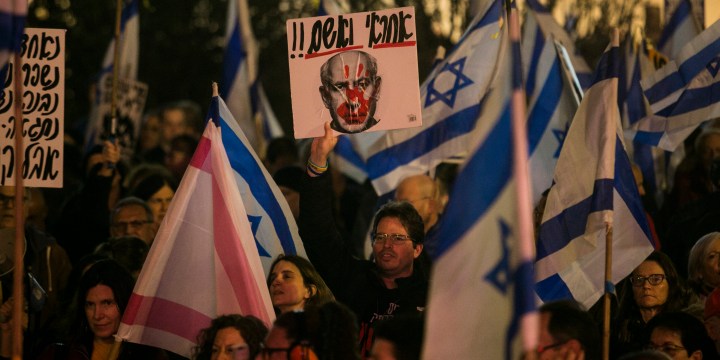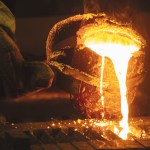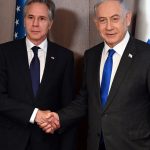MIDDLE EAST CRISIS UPDATE: 30 JANUARY 2024
Big gaps remain in hostage talks — Netanyahu; Negotiations ‘in a much better place’ — Qatar PM

Israeli Prime Minister Benjamin Netanyahu said at a summit in Paris on Sunday that to negotiate a return of hostages held by Hamas in exchange for a ceasefire in Gaza was ‘constructive’, but ‘significant gaps’ remained.
Negotiations to free hostages taken by Hamas had made progress, and “we are in a much better place than where we were a few weeks ago”, Qatar’s Prime Minister Sheikh Mohammed Bin Abdulrahman Al Thani said at the Atlantic Council in Washington on Monday.
President Joe Biden’s administration is weighing a response to the deadly attack on US forces in Jordan that’s tough enough to deter Iran and its proxies without sparking direct warfare with the Islamic Republic, according to officials and experts.
Iran executed four people accused of working for Israel’s intelligence service to plan an attack on a military facility, the judiciary’s Mizan news agency reported.
Netanyahu says big gaps remain in new hostage negotiations
Israeli Prime Minister Benjamin Netanyahu said a summit in Paris on Sunday to negotiate a return of hostages held by Hamas in exchange for a ceasefire in Gaza was “constructive,” but “significant gaps” remained.
Those differences would be discussed at additional meetings this week, according to a statement from Netanyahu’s office.
Spy chiefs and top officials from Qatar, Egypt, the US and Israel met to try to secure the release of more than 100 hostages taken from Israel on 7 October who are still held in Gaza and end the war there that has killed more than 26,000 people, according to Hamas officials.
The deal under discussion would include a two-month pause in fighting to allow the return of captives, according to reports in international media. Hamas wants the end of combat to be permanent. Israel doesn’t, arguing the country won’t be secure until the military and governing structures of Hamas are dismantled.
Negotiators are attempting to craft a ceasefire in a way that could be seen as permanent by Hamas, considered a terrorist organisation by the US and European Union, and temporary by Israel, Haaretz newspaper reported.
The reports said women, children, the elderly and the wounded would be returned in the first month in exchange for a halt in the fighting.
Read more: Netanyahu says elimination of Hamas remains his goal in Gaza
Soldiers and those of military age would follow in the second month. As part of the deal, a large number of Palestinian prisoners in Israel would be released and more humanitarian aid would be allowed into Gaza, where hunger and disease are spreading as nearly two million remain displaced.
Heavy fighting is ongoing around the southern Gaza city of Khan Younis where Israeli soldiers are hoping to find Hamas leaders and hostages in underground tunnels and destroy the group’s infrastructure. Tens of thousands of civilians are trying to escape to safety from the area.
Within Israel, there is a growing divide over what should happen in Gaza once the war ends, even as many in the world push for a Palestinian state.
On Sunday evening in Jerusalem, a group of far-right politicians — including a dozen ministers in Netanyahu’s cabinet — took part in a conference calling for the rebuilding of Jewish settlements in Gaza, in effect a complete reoccupation of the coastal strip.
Israel removed its 21 settlements in Gaza in 2005 when it withdrew military forces. The organisers, active in the West Bank, put forward a plan for six core settlements throughout the enclave.
Finance Minister Bezalel Smotrich, Homeland Security Minister Itamar Ben Gvir, and at least four ministers from Netanyahu’s ruling party, the Likud, were among the participants.
Read more: An isolated Israel commits to war in Gaza — at all costs
Netanyahu has previously rejected the idea.
Participants in the conference say settlement is the only way for Israel to regain security because the military must be where Israeli civilians live to provide protection.
Hamas took control of Gaza in 2007, shortly after Israel pulled out. The group has since concentrated on building up its military abilities.
Opposition leader Yair Lapid said the conference was “a disgrace to Netanyahu and his party, which is trailing helplessly behind extremists”. He said it would damage hostage negotiations while also putting Israeli soldiers at risk.
Qatar’s prime minister sees Gaza hostage talks making progress
Negotiations to free hostages taken by Hamas had made progress, and “we are in a much better place than where we were a few weeks ago”, Qatar’s Prime Minister Sheikh Mohammed Bin Abdulrahman Al Thani said at the Atlantic Council in Washington on Monday.
With Qatar playing a mediator’s role, he said, the effort has moved “to a place that potentially might lead to a ceasefire permanently in the future”.
Humanitarian aid shouldn’t be used as leverage, Sheikh Mohammed said, adding, “If we can put an end to this conflict the entire face of the region will change.” Asked about the deadly attack on US forces in Jordan, he said Qatar condemned any act that sought to undermine the security and stability of the region.
John Kirby, spokesperson for the US National Security Council, told reporters at the White House on Monday that a pause in fighting between Israel and Hamas in Gaza would be necessary to get hostages out safely and “if you get that period of time — whatever that ends up being — then you can take advantage of it to get more humanitarian assistance in”.
US seeks a just-tough-enough response to deadly attack in Jordan
President Joe Biden’s administration is weighing a response to the deadly attack on US forces in Jordan that’s tough enough to deter Iran and its proxies without sparking direct warfare with the Islamic Republic, according to officials and experts.
“We will do whatever we need to do to protect our forces going forward, but certainly, at the end of the day, we are not looking to engage in a wider conflict but merely to ensure regional security and stability,” Major General Pat Ryder, a Pentagon spokesperson, said on Monday in an interview on Bloomberg Television.
Biden is facing mounting political pressure at home to respond forcefully to the drone assault, which killed three US soldiers and wounded dozens of others. They were the first Americans to die from such an attack since regional tensions were inflamed by the start of the Israel-Hamas war in Gaza in October.
“Hit Iran now,” said hawkish Republican Senator Lindsey Graham. “Hit them hard.”
The most likely scenario is that the US will target Iranian-aligned assets outside Iran, according to Suzanne DiMaggio, a senior fellow at the Carnegie Endowment for International Peace.
“A direct attack on Iranian territory runs the high risk of igniting an expanded war by design or by accident” and jeopardising ongoing hostage and ceasefire negotiations in Israel’s war with Hamas in Gaza, she said.
The US could hit forces of Iran’s Islamic Revolutionary Guards Corps deployed in locations such as Syria. Thomas Spoehr, a retired army lieutenant-general and national security consultant, said “they have to hit uniformed Iran service members,” perhaps those operating in Iraq, Syria or Yemen. “I don’t think these people are probably hard to find,” he said.
At least so far, it’s been of value for both the US and Iran to maintain ambiguity about whether the groups armed and aided by Iran are acting with a measure of independence. On Sunday, Biden didn’t directly blame Tehran, saying the attack “was carried out by radical Iran-backed militant groups operating in Syria and Iraq”.
Iran said any suggestion it was responsible was “baseless” and insisted the groups that it’s allied with acted independently.
“Resistance groups in the region do not take orders from the Islamic Republic,” Foreign Ministry spokesman Nasser Kanaani said. He was referring to what’s often called the “axis of resistance” — a network of militias in territories from Yemen to Iraq and Gaza that are supported by Tehran and share its opposition to the US and Israel.
Washington’s response will be stronger than its most recent retaliations against Iranian proxies, according to a person familiar with the US position, underlining the risks of further escalation in a conflict that’s already spread from Gaza across the Middle East.
“The US faces bad options only,” said Firas Modad, head of Modad Geopolitics, a risk-advisory firm. Biden was under “immense pressure” to respond to the deaths in Jordan, but a direct conflict with Iran was likely to result in higher energy prices and significant casualties, he said.
Any escalation also risks scuttling US efforts to forge a ceasefire between Israel and Hamas that could help stem their conflict in Gaza, which has inflamed tensions across the Middle East. Central Intelligence Agency director William Burns was headed to Paris for talks aimed at halting the violence for at least two months in exchange for Hamas releasing most of the remaining hostages seized in its 7 October attack against Israel.
Iran executes four people accused of spying for Israel
Iran executed four people accused of working for Israel’s intelligence service to plan an attack on a military facility, the judiciary’s Mizan news agency reported.
The group received training abroad from Israel’s Mossad, entered Iran via Iraqi Kurdistan and had planned to bomb the Ministry of Defence site in the central Isfahan province, it said. An appeal against their death sentence was rejected.
Read more: The Israel-Iran shadow war reaches a risky new phase: QuickTake
Iran blamed Israel for a February 2023 drone attack on a Ministry of Defence facility in Isfahan. It wasn’t clear from Monday’s report whether the site was the same as the alleged target of the four people.
Tehran has repeatedly said that Mossad has a presence in northern Iraq, culminating in missile attacks on an alleged Israeli “spy base” in Erbil earlier this month. DM
Read more in Daily Maverick: Israel-Palestine War




















Comments - Please login in order to comment.